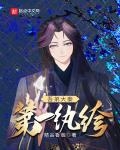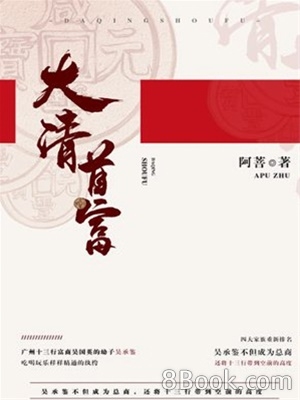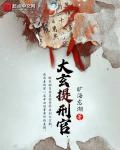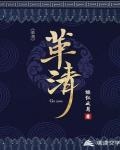Volume 3 Chapter 7: Crossing Mount Li in the Early Morning
This time, Lu Haowen suddenly showed his responsibility, resulting in losses for both sides, which made Zhao Jiu reflect on many things.
He realized that it was too early for him to do whatever he wanted... and that this bureaucratic group, which had not played any decisive role in Nanyang before and had made him a little annoyed, was by no means his enemy.
In a word, everyone has to get along like this and they absolutely cannot get divorced, or it’s pointless to get divorced... We are Adam and Eve, why are we still hurting each other?
In fact, the controversy over the edict of guilt in this court meeting and the controversy over the previous peace talks, taken together, can be seen as a mutual test between the two sides after they returned from Nanyang to Dongjing, in an attempt to find a new position for both sides:
The first wave was considered a victory for Zhao Jiu, so the authority of the Zhao family undoubtedly grew significantly;
The second wave tested the bottom line. Faced with the serious issue of moral principles, both sides stopped after a little probing.
But then again, after this court meeting, both sides entered a cooling-off period, and things actually began to make progress - a very ridiculous thing was that Yue Fei actually succeeded in suppressing the rebellion directly, and his document reporting victory actually arrived together with the letter from Concubine Pan requesting to accompany the emperor.
Even the Privy Council doesn’t dare to believe it!
The military rebellion in Jiangning, the southeast, which had been going on for half a year and had caused serious political, military and economic obstacles to the revival of the Song Dynasty, ended on the fifth day after Yue Fei's troops crossed the river.
Yue Fei's military report was also written with extreme sincerity and honesty:
On the day of crossing the river, they fought with the enemy at Shibu Town, east of Jiangning Prefecture, and won; the next day they fought a big battle at Jiangshan (now Zhongshan) and won again; after a day of rest, they attacked Jiangning at night and conquered it; the next day, the commander of our unit, Zhang Xianfu, pursued the enemy to Niutou Mountain, southwest of the city, captured the bandit leader Wang Yi, and captured more than 10,000 rebels.
The Privy Council once expressed cautious skepticism about this battle report.
The reason for their caution was that they also knew that the fighting power of the Jiangning rebels could not be too strong. As long as they fought honestly and step by step, this group of rabble could not be the opponent of Yue Fei's elite imperial camp who had fought bloody battles with the Jin army.
However, the question is, in the more than 100 years since the founding of the Song Dynasty, have there ever been generals and troops who would go to war honestly and step by step without any unnecessary actions or additional conditions?
Di Qing?
Di Qing also engaged in political speculation when he was the Privy Councilor! Although Wen Yanbo's words were abominable, General Di was not so innocent in the context of the incident that triggered these words.
Han Shizhong?
This guy just forcibly conscripted soldiers in Huaixi and almost caused a civil unrest.
So, don't we need to stay in the prosperous southeast for a few more days? Don't we need the Queen Mother in Yangzhou to give us some rewards? Don't we need to coordinate the deployment of friendly forces and logistics after Lu Yihao takes office?
Just cross the river, fight, attack the city, chase the enemy, and it's settled?
Not to mention the Privy Council, even Zhao Jiu, although he knew it was definitely true, still felt that this military report was absurd... Thinking of him running to Jingou at night, he would rather lose his country than chop off a head, and cross the Huai River at night with a head in his arms, who would serve him? When did he not risk his life to show off?
Isn't it absurd that you know it is true, but still feel it is too unreal?
Not to mention, there is Qu Duan right now who provides a sharp contrast.
Therefore, Emperor Zhao, who was rarely in good spirits, issued an edict to commend Yue Fei, and at the same time ordered Lu Yihao to quickly clean up the situation in the southeast and hand over the materials from Liangzhe and Fujian that had been blocked by the war to Yue Fei's troops for escort to Tokyo.
At the same time, on the one hand, he replied to allow Concubine Pan to enter the capital, and on the other hand, he sent Chief Censor Hu Yin as a special envoy to go out of Guanxi to meet Yuwen Xu Zhong and the generals of Guanxi. This was both a kind of help from Emperor Zhao to Hu Yin, hoping that he could get out of the inappropriate state after the previous self-criticism edict, and also to make a thorough decision on the situation in Guanxi.
You must know that it's not just a matter of the southeast. A few days ago, Zhang Jun, who was stationed in Bashu, also brought good news. According to him, the financial reforms adopted by Zhao Kai, which were previously recognized by the court, have achieved miraculous results... Zhao Jiu can now understand this reform a little. It means that although the Song Dynasty court had a developed economy in the past, it emphasized the control of the official economy. At least the income in special areas such as tea, salt, wine, alum, copper and iron must be ensured to be a state monopoly. However, because of the need to ensure control, the actual market size demand in remote areas such as Bashu is far greater than the official quota. Zhao Kai's reform is to completely open up the market in the current situation where the central government is extremely short of money, so as to obtain the maximum possible financial benefits from these exclusive economies.
As a result, the entire Bashu region earned nearly one million strings of extra interest from tea alone within a year (one string refers to a string of money, and due to the copper price issue, the actual exchange rate is far less than one thousand coins, and the amount is uncertain, but it is better representative of purchasing power).
To put it bluntly, one million strings of cash is nothing compared to the total fiscal revenue of over 100 million in the Song Dynasty before the war. It is also not a big number compared to the fiscal revenue of nearly 10 million in Bashu and Southeast China. Moreover, the final benefits of Zhao Kai's fiscal reform will take time to complete the fiscal cycle...
But the key thing is that after Zhao Kai's reforms and Zhang Jun's unified pressure, the Bashu area encouraged tea merchants to engage in tea-horse trade. In the first year alone, more than 10,000 horses were directly exchanged from the Hengduan Mountains and the northwestern snow areas!
Well, in this case, not to mention the issue of transportation efficiency after the financial situation of Bashu has improved on a large scale... it would definitely be most efficient to use it directly in Guanxi... just the issue of transportation and distribution of war horses has made the solution to this mess in Guanxi urgent.
Hu Yin was not a fool. Although he was a little too straightforward, he knew very well that this journey to the west was the emperor's love for him and it was also a serious national affair. So on the second morning after receiving the imperial decree, as soon as the city gates opened, he took his deputy Wanqi Xie, three or five clerks from the provincial capital, a dozen attendants, and twenty soldiers deployed from the imperial camp, and set out to the west.
Traveling westward, the scenery in the first half was quite common.
The so-called ordinary sights are actually not ordinary. They are just the scenes that Hu Yin and others are accustomed to seeing in the daily life around Tokyo... They are nothing more than military settlements, forts built along the Yellow River, crowded with soldiers and their families, and refugees coming in continuously from Hebei.
As for the local people of Henan who had already moved south, and even the refugees from Hebei who had moved south to the Central Plains a few years earlier, they were simply unwilling to return to the front line to make a living.
Therefore, the first hundred miles of the road were filled with the special atmosphere of military control and the specific desolate quality of the post-war period.
All of these were so similar to Tokyo City that Hu Yin and his companions were filled with emotion and worry.
However, this worry soon disappeared, because after crossing Sishui Pass and entering the territory of Xijing, Hu Mingzhong and others became completely speechless - Xijing Luoyang also suffered from war and was desolate, but unlike the desolation to the east of Sishui Pass where there was still a sense of human activity and overall there was a hint of recovery, the desolation here had a horrible gray atmosphere that made people feel completely hopeless.
The ancient capital of a thousand years old, as early as the end of the Jingkang period and the beginning of the Jianyan period, attracted the retaliatory burning of the city and massacre by the Jin army due to the strong resistance of the Zhai brothers and other rebel forces in Xijing.
The prosperous core of the Song Dynasty was burned down early on.
During the two major invasions of the Later Jin army, the main forces passed through this place, and several tragic large-scale battles broke out. It is even conceivable that if war breaks out again in the future, Xijing, a key place that has lost its complete city system, will probably suffer a large-scale military disaster.
Therefore, not only were the people of Xijing who had fled unwilling to return, even the refugees from Hebei avoided this place, and the local garrison troops also focused on building forts in the mountains around the Luoyang Plain in preparation for future responses.
The Luoyang Plain, which was once the center of the world, inevitably fell into an inappropriate state of silence.
Hu Yin and his companions saw along the way that the fields had been abandoned for several years, and the ridges of most fields could not be distinguished. The city was empty, and except for a few garrison troops, there was almost no sign of people's livelihood. The pigs and sheep raised by the garrison troops were directly taken to the county school and temples. When they arrived in Luoyang, they saw that the former palaces were completely dilapidated, and there were no pigs or sheep. Only wild beasts roamed the streets, which was completely different from the human world.
Hu Yin and his companions were shocked, but they still decided to go to the Zhao Song Dynasty's eight tombs to pay homage, but they were dissuaded by the local old soldiers sent by Niu Gao who had been instructed in advance. The reason was that after the invasion of the Jin army, according to the feudal superstition of the time, they naturally robbed the Zhao family's tombs, and Lu Xing, who had taken great pains to protect the imperial tombs in the past, led his troops to fight against the Jin army, bandits, and righteous forces who tried to rob the tombs repeatedly around the Zhao family's imperial tombs, and the corpses there were piled up, making it a dangerous place.
However, Emperor Zhao and the central government had issued several clear decrees. During the previous battles, they specifically told the officers and soldiers not to worry about the mausoleums. After Heyin, they also told the troops stationed in Xijing to focus on the defense construction of their own forts and not to clean up the mausoleums for the time being... So the place had already become unsightly and was temporarily blocked by the Song army.
Not to mention Hu Yin burst into tears after hearing these words, even Wanqi Xie was shocked after this trip. However, the two of them could only grit their teeth and continue their journey westward in a hurry as if they were fleeing.
Thanks to this escape-like speed of movement, in late April, the Chief Censor Hu Yin crossed Tongguan, entered Guanxi, and came to Chang'an to meet another prime minister, Yuwen Xu Zhong.
But at this time, the situation changed again, and Yuwen Xuzhong's attitude was very clear:
"Central Minister Hu, there is no need to go around investigating. Qu Duan has been so arrogant for so long that he is no longer useful! It is better for him to return to Tokyo and report!"
"What does Minister Yuwen mean?" Hu Mingzhong was stunned.
Of course he was stunned, and even Wanqi Xie found it unbelievable.
You must know that the reason why Guanxi was hesitant was, on the one hand, that the main force of the Jin Army's Western Route was extremely powerful, which led to Guanxi always losing battles. The situation was also deteriorating, and it was impossible to carry out work; on the other hand, after Yuwen Xuzhong came to Guanxi, he always emphasized that power should be delegated and leniency should be given to the front-line generals, which was quite contrary to the idea of the central government to get rid of Qu Duan.
In other words, Yuwen Xuzhong has always been Qu Duan's actual protector.
And now, Hu Yin and others, traveling all the way from Xijing, have witnessed with their own eyes the devastating scenes of war where "the pools and trees are abandoned, and people still hate to talk about war". They have increasingly felt that they should not care about the somewhat domineering and annoying personalities of the generals on the front line, but should focus more on the actual military results... In a word, as court envoys, Hu Mingzhong and others have gradually changed their concepts along the way, and they have gradually understood Yuwen Xuzhong's ideas.
Therefore, when they met now, Prime Minister Yuwen suddenly changed his attitude completely, which inevitably made Hu Yin and others puzzled.
"After this battle, Qu Duan took the opportunity to annex the troops of Guanxi..." In the hall of the Chang'an government office, the haggard Yuwen Xuzhong twirled his beard and sighed. "That's fine, he did the same thing after the battle last year. It can only be said that it is an old custom in the army. When encountering troubled times, ambitions arise. Moreover, this time he reported to me and sent a letter, and Wang Shu, who has a legitimate responsibility, has been in his army since the defeat..."
"In that case, it's not against the rules." Wan Qixie, who was sitting at the bottom, interrupted carefully. "Could it be that there was a story of forcing Wang Jinglüe in private?"
"If it were just that, it would be fine." Yuwen Xuzhong shook his head repeatedly. "In fact, everyone in the court knows that I have always believed that the court's attitude of controlling the military with civil officials is indeed a bit excessive. It is even more inappropriate in this time of national crisis. It is indeed necessary to delegate power to generals who know military affairs, and then civil officials who do not know military affairs can take the initiative to take charge... Wang Shu was defeated, and Qu Duan humiliated and oppressed him. At most, this person has a hateful personality."
"That is..."
"Just a few days ago, my staff returned from Qu Duan's army and told me something... Wang Shu and Wang Jinglüe seem to be under house arrest by Qu Duan!"
"Why do you think so?" Hu Mingzhong asked without further ado.
"After one of my staff members arrived at Qu Duan's army as my envoy, Qu Duan directly advised us that Wang Jinglie had lost his army and humiliated the country, so it would be better to kill him to thank the world." Yuwen Xuzhong's face turned pale.
"..." Hu Yin was stunned and speechless for a moment.
"This is not being domineering, this is treason!" Wan Qi Xie was also stunned, but he blurted out immediately. "How could a commander or prefect kill a military governor?"






